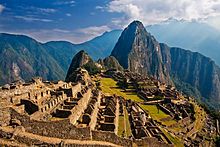Insanity: doing the same thing over and over again and expecting different results.
~Albert Einstein~
Europe losing battle against debt crisis
Europe is fighting losing battles on two fronts. The debt crisis which began in Greece almost three years ago has spread to other countries. The recovery from the global financial crisis is ending, and the region will be in recession during the rest of the year. To combat the debt crisis, Greece, Ireland and Portugal have received bailout funds from the EU, European Central Bank and the International Monetary Fund (the “troika”), but are required to reduce borrowing through cuts in spending and higher taxes. To offset the recessionary impact of the fiscal tightening, the ECB has repeatedly eased monetary policy to encourage lending to the private sector.
Neither measure has worked as intended. The eurozone’s latest unemployment figure of 11.1 per cent in May is the highest in the euro era. Spain, the country recording the region’s highest unemployment rate of 24.6 per cent, announced a €65bn fiscal tightening programme this month. The new austerity measures will result in a deeper recession and even higher unemployment.
On the monetary front, the ECB implemented two repurchase agreements totalling €1tn with the region’s banks. While the aim was to ease the liquidity crisis that the banks experienced in November, the ECB move had the perverse impact of making those banks the principal purchasers of their own governments’ debt as foreign investors exited. This raises the risk for banks in case their governments default on their debt, or restructure payments. After a cut in the deposit rate the ECB pays the banks to zero on July 5, the central bank expected the banks to increase loans. Instead, they appear to be sitting on the funds.
The austerity measures that Germany has insisted on imposing on financially strapped countries as a requirement for bailing out the banks that caused it all, is coming back to bite the hand that fed it.
Germany Under Cloud From Euro Zone Woes
FRANKFURT – Germany’s stellar credit rating has been thrown into doubt because of the cost of holding together the euro zone, potentially making it more difficult for Chancellor Angela Merkel to muster political support to aid Greece and Spain.
Moody’s Investors Service said late Monday that it was changing the outlook on Germany, as well as on the Netherlands and Luxembourg, to “negative,” citing what it said was an increased risk that those countries will have to bear the cost of propping up Spain and Italy.
That helped push up borrowing costs Tuesday for both Germany and Spain ahead of talks late in the day between the finance ministers of both countries in Berlin.
While Germany’s bond yields remain near record lows, Spain’s have reached levels that are considered unsustainable for long, raising fears that it will have to ask for aid that its European partners cannot afford.
Austerity’s Big Winners Prove To Be Wall Street And The Wealthy
Governments in Europe, most notably the United Kingdom, have also pursued tax cuts for the rich while imposing austerity measures on the working classes. And the European financier class has benefited even more directly than their American counterparts from these budgets.
Every time the European Union has reached a crisis point on the debt carried by Greece or Spain, EU leaders, especially German Chancellor Angela Merkel, have come to the rescue with bailout funds. That money goes to the banks that own Greek and Spanish debt, whose holdings would take a hit if either country were unable to repay. But the bailout comes with harsh austerity requirements intended to encourage budgetary discipline, so it’s ordinary citizens who end up taking the hit. The most vulnerable populations are harmed by the bailouts, while the well-paid financial professionals who made the deals to finance Greek and Spanish deficits in the first place continue profiting handsomely.
“Imposing pain on Greeks is … a blood price for the ever-repeated bailouts whose actual beneficiaries are said to be Greeks, but are in fact French and German bankers,” said (James) Galbraith.
Eventually it will all come to an end. Then what?



Recent Comments